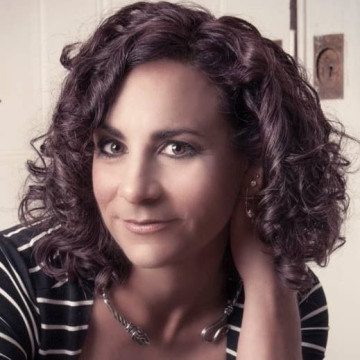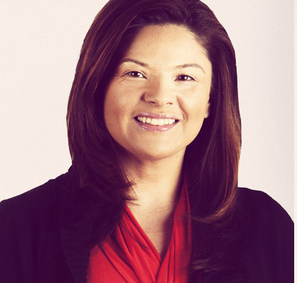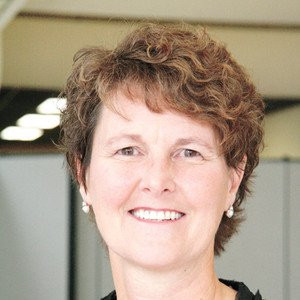It’s All About Education: Why So Many Choose Progressive Education
Wednesday, July 22, 2015
Imagine a school where every child is actively engaged in meaningful projects. Students are encouraged to ask questions and devise their own solutions to problems. Children work cooperatively with each other and with their teachers, who serve as guides and mentors. There is a sense of community and responsibility both to and for others. This is progressive education.
In the past week, it is getting renewed attention, thanks to U.S. Secretary of Education Arne Duncan. After more than six years in the DC area, he recently moved back to Chicago with his family. This fall, his wife Karen will teach at and his children will attend the University of Chicago Laboratory School, an independent progressive school. It is interesting to note that this is a school that has remained unaffected by many of the policies put in place by his department, such as Common Core and standardized testing.
The school’s mission statement states that they “ignite and nurture an enduring spirit of scholarship, curiosity, creativity and confidence.” Secretary Duncan is an alumnus of the school, and President Obama’s daughters went there prior to moving to DC; Chicago Mayor Rahm Emanuel’s children are also enrolled. The famous Bank Street School for Children in New York City is another school founded on the progressive education philosophy.
GET THE LATEST BREAKING NEWS HERE -- SIGN UP FOR GOLOCAL FREE DAILY EBLASTWhat makes progressive education so appealing to so many? For parents, it’s often about choosing a joyous learning environment. Sandra Pinnavaia and her husband envisioned a place that would provide a strong foundation while encouraging their children to be kids: “We wanted school to be fun, mind-expanding, and a place where the right things mattered. We wanted them to play and argue and invent and learn every day, and most of all to love going to school.”
Teachers are often drawn to progressive education because it requires students to be active participants in learning rather than passive receivers of information. When students learn by doing, they develop both a deeper understanding of concepts and their own self-confidence. Science teacher Glenn Littledale, of the Putney School, structures his classroom so that students discover ideas for themselves. After all, he says, “the world is awash with high school and college students who know the content of their science text books but can’t think their way out of a paper bag.”
In Rhode Island, there are two progressive schools, both located in Providence. School One (S1) serves high school students with diverse backgrounds and unique learning styles. Head of School Jennifer Borman writes, “We offer a place where students and teachers are treated with respect, where creativity and debate are celebrated and where classes are meaningful and relevant.” The Jewish Community Day School of RI (JCDSRI) enrolls students in Pre-Kindergarten through fifth grade, and they see themselves as “guardians of childhood.”
Most progressive schools seek to teach children to be independent thinkers who work together to solve complex problems. Toward this end, JCDSRI has a Design Lab in which all students work at least once each week, using the design thinking framework. Design thinking is a collaborative approach to producing creative solutions, developed for use in education at Stanford University. In addition, JCDSRI students and teachers have partnered with the Brown-RISD STEAM Club to engage in several real-world projects over the past two years.
In today’s global economy, we need our graduates to be inventive and innovative thinkers. Employers increasingly state that they want to hire creative problem-solvers. Because of this, schools all over the world (public, charter, parochial and private) are incorporating design thinking and design labs into their curricula. The philosophy of progressive education, though, seems particularly well-suited to incorporating this approach.
Adam Tilove, Head of School at JCDSRI, believes that design thinking meshes with the school’s mission to “nurture each student’s innate creativity and curiosity while promoting academic rigor and developing personal character.” The school fosters an inherent love of learning and a spirit of cooperation; students learn to value the contributions and ideas of their classmates, while learning that there are multiple routes to success.
Earlier this year, a book called Loving Learning: How Progressive Education Can Save America’s Schools was published. The authors suggest that teachers and schools that promote inquisitiveness and allow the curriculum to develop organically through students’ curiosity can reinvigorate our schools and help prepare our students for tomorrow. Clearly, Arne Duncan and many of our other leaders agree. This philosophy is the opposite of a standardized national curriculum.
Although the progressive education movement began in the late 19th century, perhaps it is an idea whose time has finally come. Schools that offer an integrated curriculum, teach through hands-on experiences and experimentation, and foster social skills and a sense of community may very well help us to overcome some of the larger issues facing our country (and our world) today.
Lauri Lee is an independent consultant with over twenty years of experience in both public and private education, with learners from infants through adults. With experience in teaching, marketing, communications, social media, development, admissions, and technology, she is able to synthesize many of the issues facing our educational system today. She lives in Providence, RI with her family, a big dog, and a small cat. She blogs at http://www.AllAboutEducation.net and you can follow her on Twitter at @fridovichlee.
Related Slideshow: RI Experts on the Biggest Issues Facing Public Education
On Friday November 22, the Hassenfeld Institute for Public Leadership at Bryant University, the Latino Policy Institute of Roger Williams University, the Rhode Island Association of School Committees, the Providence Student Union, and RI-CAN: Rhode Island Campaign for Achievement Now will host Rhode Island leaders in the public and nonprofit sectors for a symposium on "the civil rights issue of the 21st century, adequacy and equity and the State of Education in Rhode Island."
Weighing in on the the "three biggest factors" facing education in the state today are symposium participatnts Gary Sasse, Founding Director of the Hassenfeld Institute for Leadership; Christine Lopes Metcalfe, Executive Director of RI-CAN; Anna Cano-Morales, Chairwoman of the Board of Trustees, Central Falls Public Schools and Director, Latino Policy Institute at Roger Williams University; Tim Duffy, Executive Director, RI Association of School Committees; and Deborah Cylke, Superintendent of Pawtucket Public Schools.
Related Articles
- It’s All About Education: Changing Lives with School Lunches
- It’s All About Education: How Vaccination Affects Schools – and Society
- It’s All About Education: How Breakfast Could Help Close the Achievement Gap
- It’s All About Education: Choosing the Right School for Your Child
- It’s All About Education: After School Programs Make a Difference
- It’s All About Education: Is the American Dream a Pipe Dream?
- It’s All About Education: Inequities in the College Admissions Process
- It’s All About Education: Social Promotion is Not the Problem
- It’s All About Education: Schools that Harness the Power of Nature
- It’s All About Education: Free College Tuition - Why Just Community College?
- It’s All About Education: A Recipe for Disaster - Common Core Standards for Kindergarten
- It’s All About Education: Learning Life Skills at Hope High
- It’s All About Education: Failure to Launch - It’s Not Just a Movie
- It’s All About Education: A Broader Definition of Education
- It’s All About Education: The Arts, Education, and Transformation
- It’s All About Education: Reading for Pleasure Predicts Academic Success
- It’s All About Education: Divine Providence: Engaging Community
- It’s All About Education: Why Summer Vacation Should Be Just That
- It’s All About Education: High-Quality Early Learning: Necessary For All
- It’s All About Education: Can Education Drive Social Change?
- It’s All About Education: School Choice - Vouchers and Tax-Credit Scholarships Don’t Pay
- It’s All About Education: Making a Commitment to Rhode Island’s Children
- It’s All About Education: How Poverty Impacts Brain Development and Learning
- It’s All About Education: Re-Imagining Our Educational System
- It’s All About Education: What Kids Learn from Sports













